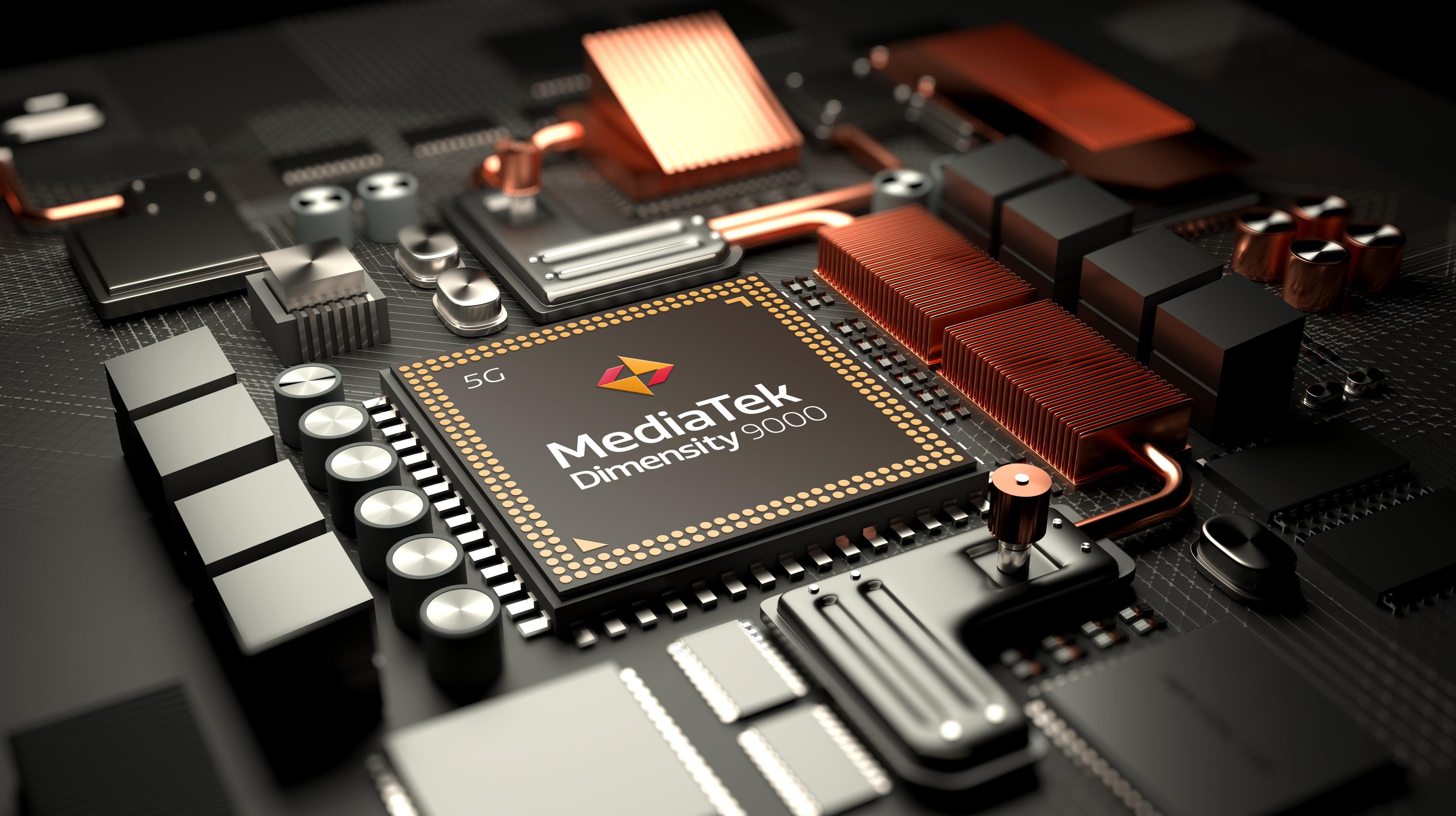MediaTek has announced its latest flagship smartphone processor — the Dimensity 9000 which is the company’s most powerful chip so far and is aiming to compete against the best chips from companies like Qualcomm and Samsung.
The MediaTek Dimensity 9000 is the world’s first chipset to be manufactured using TSMC’s 4nm process and is also the first to use ARM’s new v9 architecture. Not just that, it is also the first chipset announced with ARM’s new core designs.

It comes with a single Cortex-X2 performance core clocked at 3.05GHz, three Cortex-A710 cores at 2.85GHz, and four Cortex-A510 efficiency cores at 1.8GHz. For graphics, the chipset features a 10-core Arm Mali-G710.
There’s also MediaTek’s fifth-generation APU with six total cores for AI processing. It is claimed by the company to offer four times the performance and power efficiency compared to its previous generation.
The Dimensity 9000 will support LPDDR5x memory at bandwidths of up to 7,500 Mbps. It is also said to be able to handle screens with up to a 180Hz refresh rate at FHD+ resolutions.
Coming to the photography department, the chipset supports the first 18-bit image signal processor, which offers the ability to capture 4K HDR video using up to three cameras at the same time, or still photos using up to a massive 320MP sensor.

For connectivity, the Dimensity 9000 supports Wi-Fi 6E as well as Bluetooth 5.3. There’s no integrated modem with mmWave 5G support but the company says it supports 3CC carrier aggregation for sub-6HZ 5G with top data speeds of up to 7Gbps.
Devices powered by this new Dimensity 9000 SoC are expected to be available in the market as soon as the first quarter of 2022. To know for sure how the chipset performs, we will have to wait to test a real smartphone powered by this new SoC.
The launch of the MediaTek Dimensity 9000 flagship chipset comes when the Taiwan-based company has seen impressive results in the year 2020 and 2021 and is now the world’s largest smartphone chipset maker with around 40 percent of the market share. It is also claimed to be growing at 28 percent in the 5G SoC market.
RELATED:
- Noted tipster reveals MediaTek’s Dimensity 2000 will bear a different moniker
- Xiaomi executive explains why MediaTek phones get updated slower than Qualcomm
- Redmi K50 series will likely feature the MediaTek flagship Dimensity 2000 processor
- MediaTek chip shipments ranked first in Q3 this year, UNISOC surged to over 10000%
- MediaTek records 26.5% YoY growth in sales revenue in September






